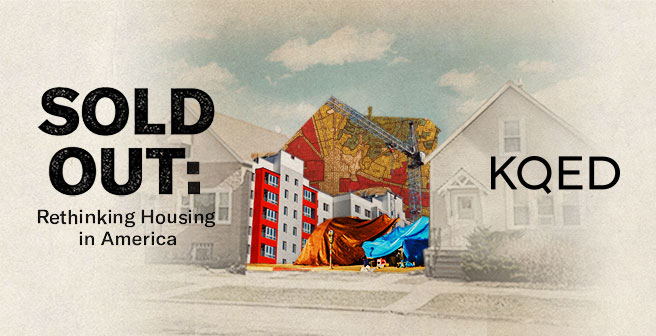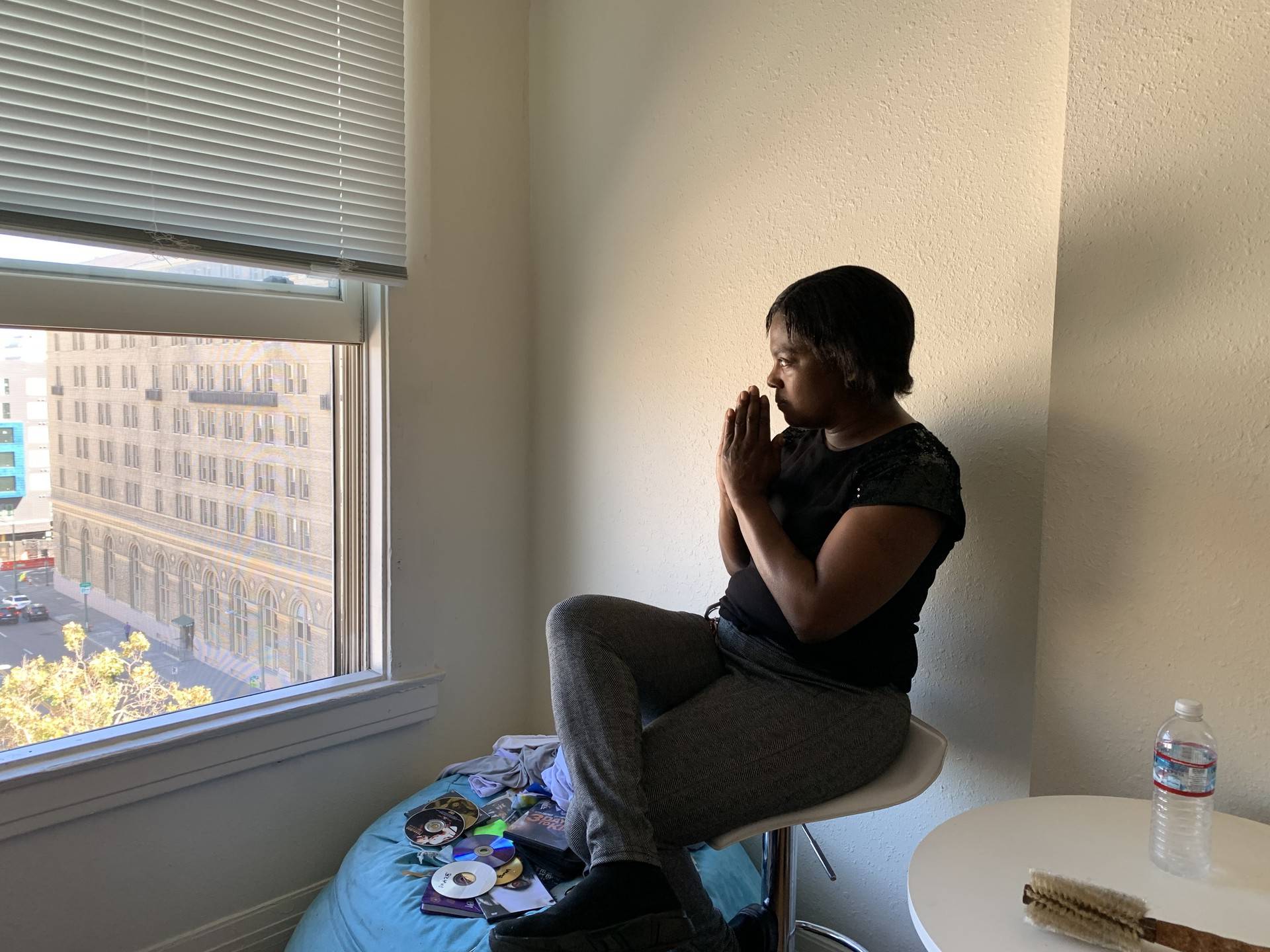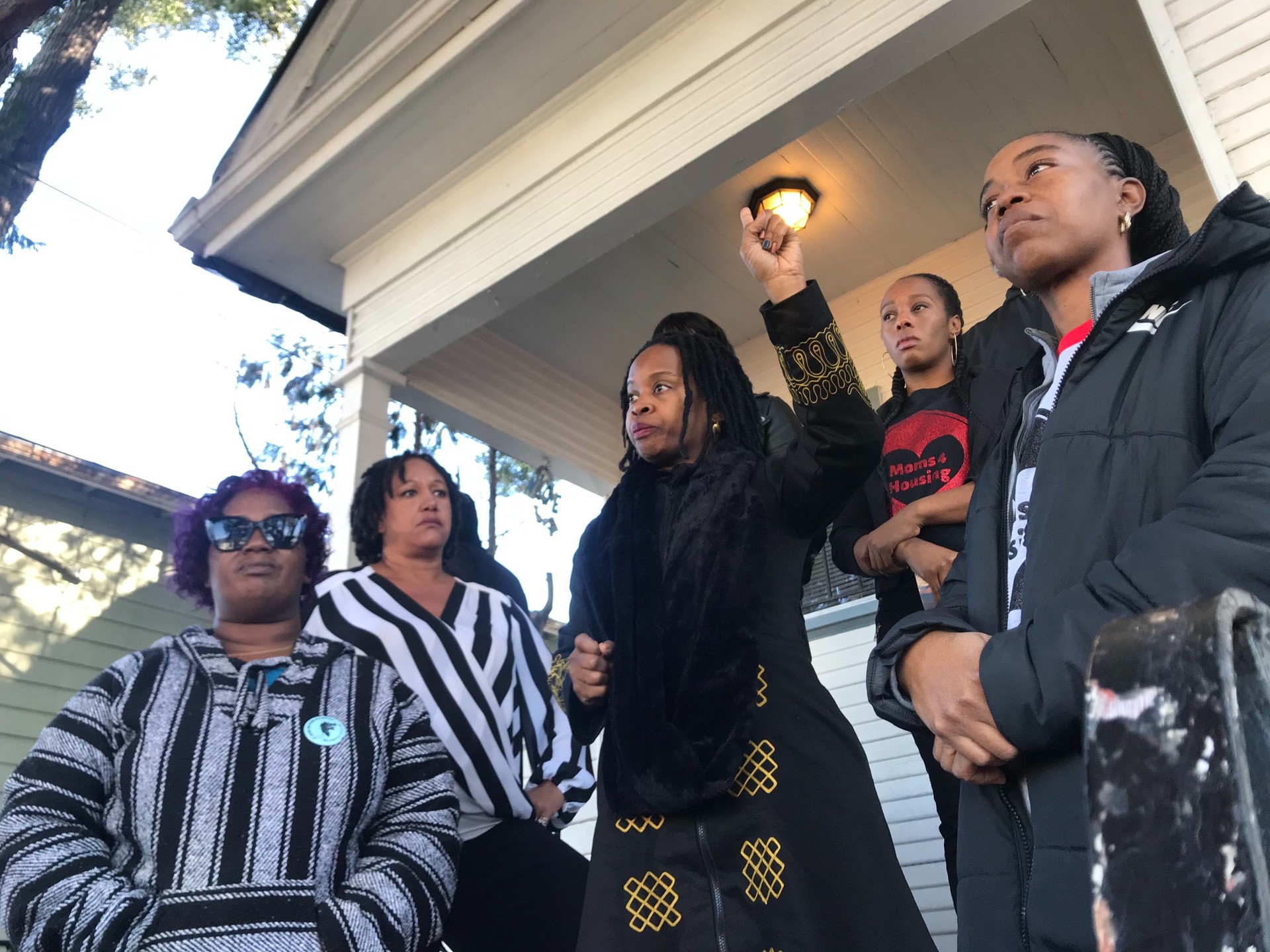A LOT has happened since we brought you SOLD OUT: Rethinking Housing in America.
The five-part series, which aired in September and October last year, dove into solutions to the country’s growing housing affordability crisis.

A LOT has happened since we brought you SOLD OUT: Rethinking Housing in America.
The five-part series, which aired in September and October last year, dove into solutions to the country’s growing housing affordability crisis.
We received tons of comments and questions from listeners, so we decided to sit down and answer some of them, and bring you an update episode.
We’re planning a second full season of SOLD OUT for this fall. But in the meantime, we want to keep answering your questions.
So get in touch on Twitter at @e_baldi or @solomonout.
You can also email us at msolomon@kqed.org or ebaldassari@kqed.org.
Here’s the latest on some of the big stories we talked about last season:
Our first episode, “Hotel Corona,” looked at Project Roomkey, a state-led effort that ultimately housed 23,000 people experiencing homelessness during the pandemic, temporarily placing them in some 16,000 hotel rooms.
Project Roomkey was always intended to be a temporary program, designed to protect people particularly vulnerable to the virus. But when Gov. Gavin Newsom announced the program in April, he also said it would be a jumping-off point for more permanent housing.
So, how many people who left the hotels actually got into permanent housing? We found that just 16% of the people in the Bay Area who left the hotels moved into permanent housing. The remainder went on to live in temporary housing, moved in with family and friends or returned to homelessness.

Jason Elliott, the governor’s senior housing policy director, acknowledged the real challenge of getting people into permanently affordable housing.
“We don’t succeed 100% of the time,” Elliott told us. “This is a population with some potentially serious behavioral health challenges, and in many cases a long history of chronic homelessness. And that’s not an easy transition to make for a lot of people.”
Many of the counties operating the hotels being used for this program had been planning on soon shutting them down, due to uncertainty over the continuation of Federal Emergency Management Agency funding. But that changed in a big way after President Biden stepped into office in January.
Biden announced FEMA would reimburse 100% of the cost of that program until the end of September 2021, and would also pay retroactively back to January 2020. As a result, many counties are now planning to keep their hotels open through at least the summer.
“Zoning Out” took a look at the racist history of single-family zoning in the country, which began in none other than true-blue, progressive Berkeley. The city’s rules prohibit affordable, multifamily housing in certain parts of the city by limiting development to one home per lot.
Since then, officials in several California cities, including Berkeley, have introduced legislation to allow fourplexes. Berkeley Councilmember and Vice Mayor Lori Droste called single-family zoning the “embodiment of racism in our zoning code.”
“We’re Berkeley,” she told us. “We care about socioeconomic and racial diversity and equity. So we need to act on that.”

The Sacramento City Council went one step further, voting unanimously in January to approve a draft plan to allow fourplexes throughout the city — the first in the state to do so.
And last year, California Senate Pro Tem Toni Atkins, D-San Diego, introduced statewide legislation to allow up to two duplexes on lots where only one home had previously been permitted. The bill died in the literal 11th hour of last year’s legislative session, but it’s back again this year as Senate Bill 9.
For the first time since President Franklin D. Roosevelt did so nearly 80 years ago, an American president has declared housing a human right. That was a topic we dove into for our final episode of SOLD OUT, A Right to Housing.
“Housing is a right in America and home ownership is an essential tool to wealth creation and to be passed down to generations,” Biden said in January, as he directed the U.S. Department of Housing and Urban Development to redress historical racism in federal housing policies.

On day one of his presidency, Biden extended the federal eviction moratorium through March 2021, and introduced a new stimulus package that would extend it even further, through September. The package also calls for $25 billion in rental assistance.
Biden has also campaigned on promises to expand the Housing Choice Voucher Program, more commonly known as Section 8, to more Americans. Currently, only one in five people eligible for a Section 8 voucher receive one, and waitlists can stretch on for years.
Biden’s plan calls for making rental assistance vouchers an entitlement program, meaning they would be available to anyone who qualifies.
Read the episode transcript here.
To learn more about how we use your information, please read our privacy policy.